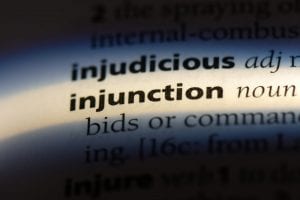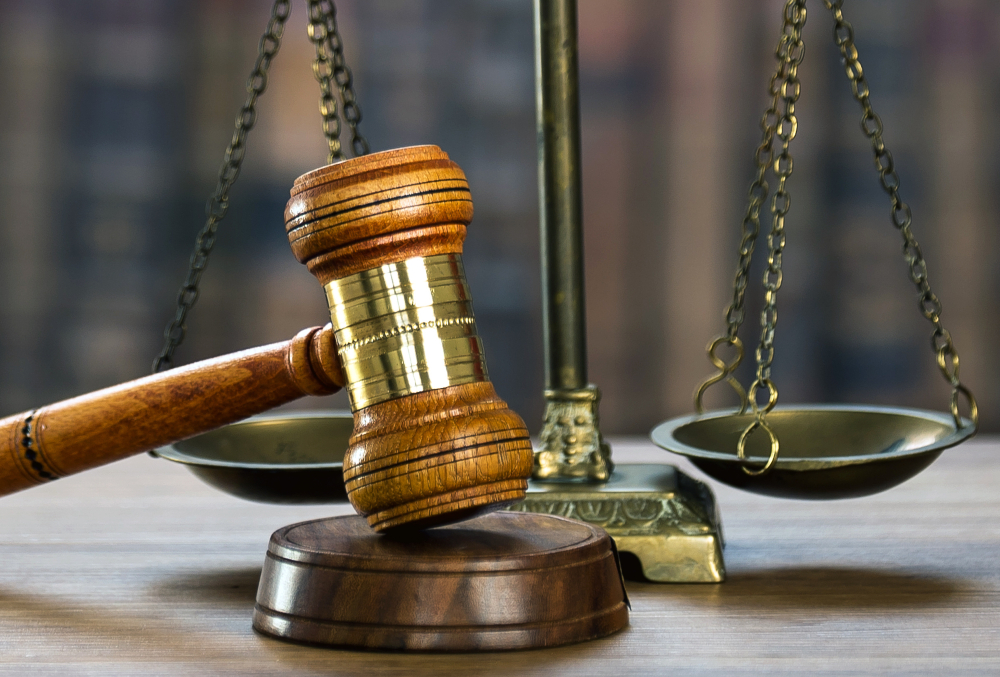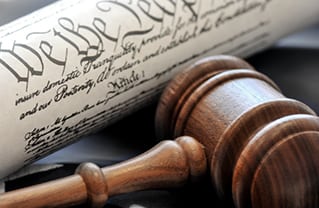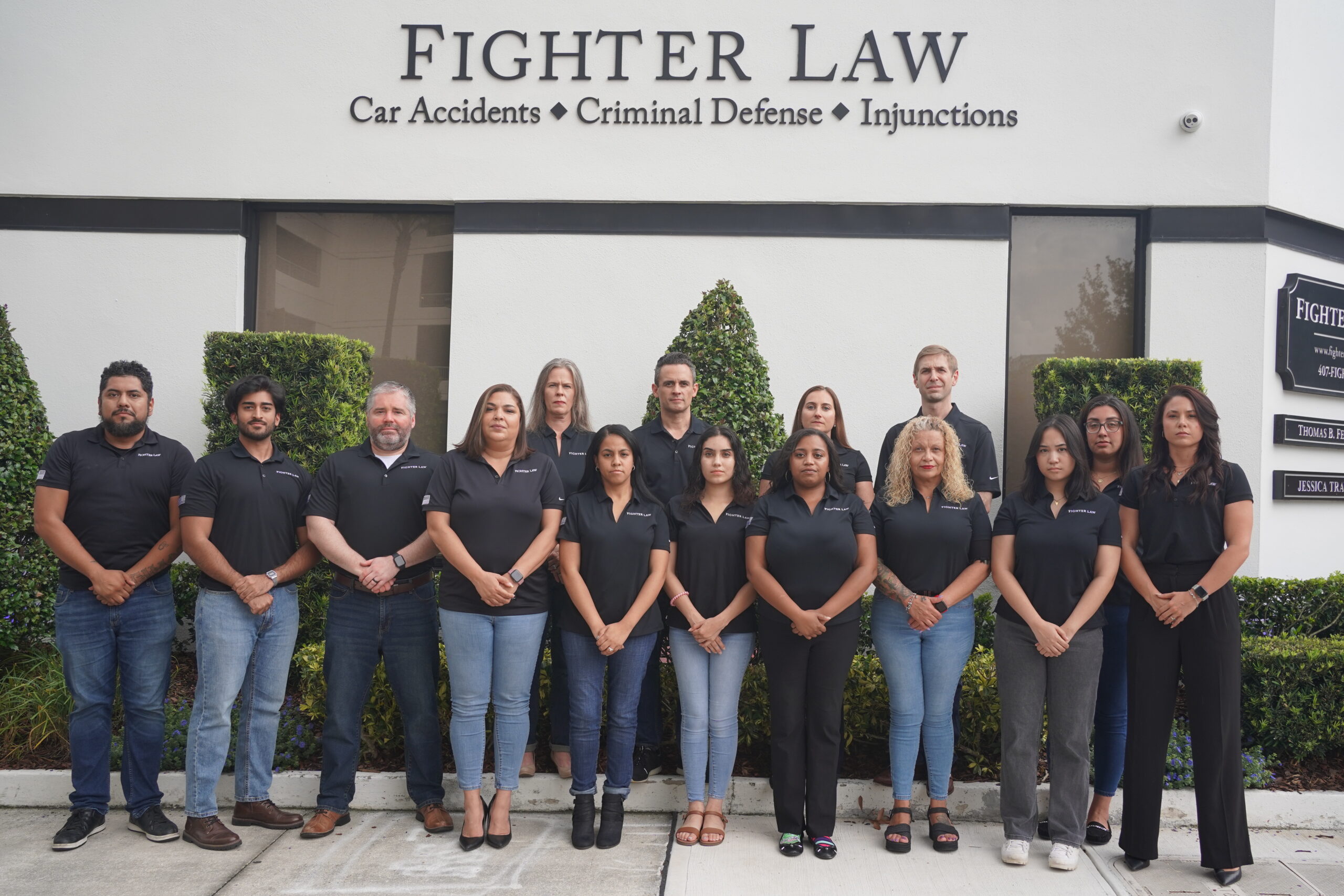Orlando Injunction Attorney
Why do you need an Experienced Orlando Injunction Attorney?
If you are trying to get an injunction (or fight against one), Fighter Law is the authority and the number 1 law firm that comes up when people search for an Orlando Injunction Attorney or Orlando Injunction Lawyer. We are the subject matter experts who consistently receive referrals from many other lawyers and law firms throuhout Florida because we have the best and most experienced trial attorneys – and we deliver results.
What Is An Injunction?
An injunction is a restraining order. If you need protection from a person, you can file an injunction against them for free. If you need to defend against an injunction because you have been accused, you can also go to court for free. Whichever side you are on in an injunction, you should get (or at least consult with) an experienced Orlando injunction lawyer first. You will be glad you did. It’s too easy to just put into Google “injunction attorney near me” and ask for a free consultation. You don’t have anything to lose and you may learn a lot!
Here are the basics on how injunctions work here in Florida:
Injunctions are designed to provide a rapid means of protection for individuals free of charge within our court system. A restraining order (or injunction) is a court order that prevents someone from doing something to or coming into contact with another person.
Petitioner = the person seeking protection from the court.
Respondent = the person who allegedly committed (or threatened to commit) violence.
The petitioner files an injunction with the court against the respondent. There is no filing fee, a judge should review it within 24 hours of filing, and the local sheriff has to serve the respondent with the injunction paperwork at no charge. The respondent is the one that served with the injunction and has to (or should) defend against it. Never agree to an injunction against you!
In Florida, there are six different types of injunctions:
 Click here to learn how to GET an injunction.
Click here to learn how to FIGHT AGAINST an injunction.
Click here for Free Helpful Injunction Forms and Templates.
Click here to learn how to GET an injunction.
Click here to learn how to FIGHT AGAINST an injunction.
Click here for Free Helpful Injunction Forms and Templates.
Learn All About Injunctions and How They Work in Orlando, FL

Judges, not juries, decide whether to issue an injunction. If the petitioner completes the form properly and provides enough information to meet the legal standard, the judge will issue a temporary injunction and schedule a final hearing as soon as possible. During this time, the respondent must avoid any contact with the petitioner and comply with any additional terms the judge sets, such as vacating the home or continuing to provide financial support to the petitioner (and children, if applicable).
At the final hearing, both parties have the right to an impartial judge and the opportunity to present their case. Although hiring an attorney is not required, we strongly recommend it. Both sides can call witnesses and submit evidence. An experienced Orlando injunction attorney can significantly strengthen your case by helping you present your arguments effectively. While the rules of evidence and procedure are more flexible in injunction hearings, they still apply.
During the final hearing, the judge must determine whether circumstances justify issuing the injunction. For example, repeatedly shouting profanities or making threats at the petitioner may not be enough, even if the behavior happened more than once. In one case, a Florida court ruled that a respondent’s comment about owning a gun and “not being afraid to use it” did not qualify as a threat because there was no overt act or indication that violence was imminent. (Santiago v. Towle, 917 So.2d 909, Fla. 5th DCA 2005).
If the court issues an injunction, either party may request a review hearing to modify the terms. At the review, the judge may revise the conditions or find the respondent in contempt of court for failing to comply. Violations can result in the respondent’s arrest.
How to Seal or Expunge a Restraining Order or Injunction
Most attorneys will tell you that you cannot have a restraining order sealed or expunged. That is not true! Our top-rated Orlando injunction lawyers have a page dedicated to the process of getting a restraining order (and all documents relating to the case) removed from public record. Click here. It is not always easy – but it is possible (especially where the allegations against you are false).
Contact Our Skilled Orlando Injunction Lawyers Today So We Can Help!
Courts usually schedule many injunction hearings for a single day, so judges will limit your time in front of them. Walk into the courtroom with confidence, knowing that an experienced Orlando injunction attorney will present your case effectively. Don’t risk the court issuing an injunction against you or missing your chance to get one when you need protection! We work hard to be the most skilled injunction lawyers in all of Florida.
At Fighter Law, clients trust us as experienced Florida injunction attorneys to represent them at final injunction hearings. Known for our many five-star Google reviews and trusted by the legal community, we receive referrals from fellow attorneys, nonprofit organizations, and even judges. Whether you need to obtain a restraining order for your safety or defend against one to protect your rights, our team provides strategic, personalized representation. When it comes to injunction cases, we are the go-to law firm, committed to achieving the best possible outcome for you.
Click here to learn how to get text messages from someone else!
Frequently Asked Questions About Injunctions
-
Can a person lie in a petition for an injunction?
-
Which county court should I file my injunction in?
-
Can someone use text messages to get an injunction against me?
-
Will the Court drop an injunction if the petitioner fails to show up for the final injunction hearing?
-
What happens if the respondent does not show at the final injunction hearing?
-
Can a party (or parties) ask the Court to amend or later dismiss an injunction that the judge has entered?
-
What actions can the court take against me if it enters an injunction against me?
-
How can I have social media posts admitted into evidence at the final hearing for injunction?
-
How can I have text messages or e-mails admitted into evidence at the final hearing for injunction?
-
How can I appeal a final order of injunction?
Can a person lie in a petition for an injunction?
Yes, people can lie in injunctions. While injunctions are important to protect victims from legitimate violence and threats of violence, people do sometimes lie in their petitions. False injunctions happen all the time. People lie to get injunctions every day – as you Orlando injunction attorney, we are here to help you fight against that. A final injunction can have serious consequences to your future. While injunctions are not criminal, they have very much the same consequences as criminal cases.
There are many different theories as to why people lie. A skilled injunction lawyer in Orlando should be able to bring to light any motive or bias a petitioner may have to falsely seek an injunction.
Here are some of the theories clients have presented to me over the years:
-
Ex-girlfriends or ex-boyfriends may seek revenge on the other out of jealousy or spite.
-
Spouses going through a divorce in the middle of a heated custody battle over their children think that getting an injunction will win them favor with the family law court or help them get custody of the children.
-
When a former girlfriend learns her boyfriend has been cheating on her – or vice versa.
-
When one person simply wants to interfere with the life of the ex and make their life miserable by dragging them back into court over and over.
-
An ex-boyfriend or ex-girlfriend wants to embarrass the other by making false allegations against them in an open court.
-
To be able to gain control over the other person. If a person gets an injunction, all they have to do is call the police claiming the respondent is violating the injunction by calling them or coming near them – this often results in the arrest of the respondent.
-
One person wants to get the other kicked out the house to teach them a lesson.
- Mental illness – some people just lash out at others because they do not have to life skills needed to cope with difficult situations.
Which county court should I file my injunction in?
You can file for an injunction in the county where you live (either temporarily or permanently), where the respondent lives, or where the violence occurred. There is no minimum residency requirement. You should also look into what community legal support there may be for victims of domestic violence.
Can someone use text messages to get an injunction against me?
Yes, text messages can be used in injunctions. However, anyone can fake text messages. Therefore, in order to get them entered into evidence for the court to consider, you have to authenticate them. In other words, there has to be something that shows that the other person in fact sent you the text messages. Circumstantial factors can be used to “authenticate” the text came from a particular person. The case to read on this point is Walker v. Harley-Anderson, 45 Fla. L. Weekly D2116a – a 2020 4th DCA case. Some of the factors include context like the person’s name being contained in the messages; other witnesses who can testify that they have communicated with that person at that number, addresses, things like that which can be linked back to the person.
Will the court drop an injunction if the petitioner fails to show up for the final hearing?
Usually, yes. Absent exceptional circumstances, the court will usually dismiss or throw out the injunction and the respondent will be free to go. As your go-to Orlando injunction attorney, we can tell which judges are likely to do this – and which are not!
What happens if the respondent does not show at the final injunction hearing?
If the petitioner indicates to the court that he or she still wants the injunction, the court will usually grant the petition and enter an injunction against the respondent. The court will want to see proof that the respondent was served with notice of the hearing, however.
Can a party (or parties) ask the court to amend or dismiss an injunction that the judge has entered?
Yes. Florida law specifically allows for that. The party (or parties) must petition the court to modify or dissolve the injunction. But be warned – the injunction will NOT be considered amended or dismissed until the judge signs an order indicated such.
What actions can the court take against me if it enters an injunction?
The court has the authority to order you not to have any contact with the petitioner, to order you to attend classes (including the batterer’s intervention program), to prohibit you owning or possessing any firearms, to have supervised visitation with any children in common and any other conditions the court deems necessary to protect the petitioner.
How can I use social media posts?
To get a judge to enter a social media post into evidence (so it can be considered for the injunction), you must authenticate it. The court wants to make sure that it is not a fake and that it actually what you say it is. Proper authentication requires only that the proponent of the evidence make out a prima facie case that the proffered evidence is what it purports to be.
You can request a subpoena for business records to Facebook or Twitter or Instagram. Simply call the custodian of records for any of those companies, but that is not really realistic. Another option is to use a screenshot. You can then testify that the screenshot is what you saw on social media when the other person posted it.
You can authenticate evidence by its appearance, content, substance, internal patterns, or other distinctive characteristics considered alongside the circumstances. Additionally, you can authenticate the evidence by presenting extrinsic proof or demonstrating that it meets the requirements for self-authentication. Lamb v. State, 246 So. 3d 400 (Fla. 4th DCA 2018).
Authentication for the purpose of admission is generally a low threshold. A witness just has to say they took the picture or they know the picture is what it purports to be. The reliability of it (and hence, how much weight to give it) is up to the judge in civil injunction cases.
Here are two recent cases on point:
In Facebook Messenger Gilbert v. State, No. 2D19-1622, 2021 WL 2385832 (Fla. 2d DCA 2021), the victim authenticated the screenshots of the conversation with the defendant by testifying about their extensive history of communicating over Facebook Messenger. The victim confirmed that the defendant’s real name and profile picture appeared in the screenshots and that the messages referred to details only they would know. The court found this sufficient for authentication.
In State v. Torres, 304 So. 3d 781 (Fla. 4th DCA 2020), the court determined that the trial court should not have excluded screenshots of text messages from a messaging app. The appellate court ruled that the contents and distinctive characteristics of the messages satisfied the prima facie requirement for authentication. The court concluded that the State presented enough evidence to show that the other party authored the messages.
How to Admit Text Messages or Emails into Evidence at the Final Injunction Hearing
To admit text messages or emails into evidence, ask the court to direct the clerk to issue a subpoena to the custodians of records for services like Gmail or cell phone providers. When the opposing party sees that you’ve taken this step, they often back down, realizing that you’re serious and prepared to prove your case. If they don’t, you will need to follow through with the process.
Once you obtain the records, you must provide them to the opposing party before the hearing. During the hearing, testify that you received the messages and confirm that they are the ones you received. You can also present screenshots of the texts or emails, which should suffice.
To authenticate the text or email, testify that you know the other party uses the specific phone number or email address. Alternatively, show the court that the email address includes the person’s name or that it comes from an address difficult to fake (such as a university .edu address). If you present circumstances that confirm the message’s authenticity, the court is likely to admit it into evidence—giving you a significant advantage, whether you are the petitioner or the respondent.
What Happens If I Am Not Served with the Injunction?
The court must serve you for the injunction process to proceed. Due process requires the respondent to receive the injunction papers before the final hearing. If the court never serves you, the injunction is unenforceable, meaning you cannot violate it. If the court enters a final order without serving you, that is a reversible error and should be undone. Contact our Orlando injunction attorney for legal guidance if this happens.
Here are 3 great videos that explain various injunction scenarios:
Orange County Specific Injunction Guidance:
Click here for Orange County Injunction Petition Forms.
Please click on this image below to learn more about injunction specifically in Orange County, Florida directly from an Orlando injunction attorney.





 Click here to learn how to GET an injunction.
Click here to learn how to GET an injunction.



